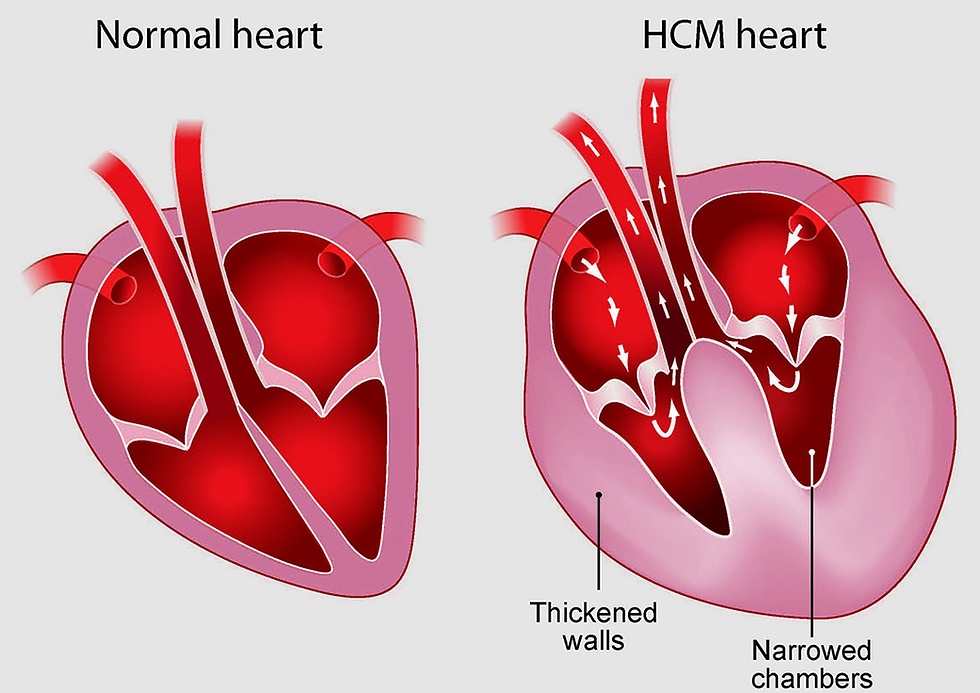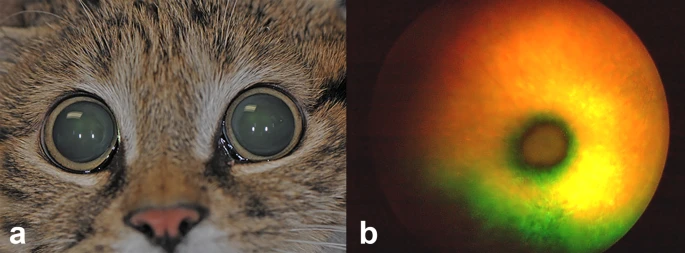Feline Genetics 101: Common Diseases and How to Spot Them Early
- Elle Reyes
- Jul 25, 2024
- 2 min read
Like humans, cats have a unique genetic makeup that plays a crucial role in their health and susceptibility to certain diseases. By understanding a cat's DNA, we can identify potential genetic disorders early and take preventive measures to ensure a healthier and happier life for our feline friends.
DNA, or deoxyribonucleic acid, is the hereditary material in almost all living organisms. It contains the instructions for an organism to develop, survive, and reproduce. In cats, DNA determines their physical traits, behaviors, and susceptibility to various diseases.
Common Genetic Diseases in Cats
Several diseases in cats are linked to their genetic makeup. Here are some of the most common ones:
1. Hypertrophic Cardiomyopathy (HCM)
HCM is the most common heart disease in cats. It's characterized by the thickening of the heart muscle, which can lead to heart failure. This condition is particularly prevalent in certain breeds like Maine Coons and Ragdolls.
2. Polycystic Kidney Disease (PKD)
PKD, a genetic condition, results in the formation of fluid-filled cysts in the kidneys, potentially leading to kidney failure. This disease predominantly affects Persian cats and similar breeds.
3. Progressive Retinal Atrophy (PRA)
Progressive Retinal Atrophy (PRA) encompasses a set of genetic disorders that result in the degeneration of the retina, ultimately leading to blindness. This condition is frequently observed in Abyssinian and Siamese cats.
4. Glycogen Storage Disease Type IV (GSD IV)
GSD IV is a rare genetic condition that alters how the body stores and utilizes glycogen. Cats with GSD IV often display muscle weakness and stunted growth signs. Norwegian Forest cats are especially prone to this disorder.
5. Mucopolysaccharidosis (MPS)
MPS refers to a set of genetic conditions where the body struggles to metabolize specific complex carbohydrates. This results in an accumulation of these substances within cells, potentially resulting in health issues like skeletal abnormalities and organ dysfunction. Siamese and similar breeds are at a higher risk of developing this disorder.
Genetic Testing for Cats
Recent progress in veterinary genetics enables the testing of cats for various genetic diseases. This testing method includes examining a cat's DNA sample, typically collected from a cheek swab or blood sample, to pinpoint specific mutations linked to particular diseases.
Benefits of Genetic Testing
1. Early Detection:
Detecting genetic disorders at an early stage enables timely intervention and treatment.
2. Informed Breeding Decisions:
Breeders have the option to utilize genetic testing for making informed choices and diminishing the occurrence of genetic diseases in upcoming generations.
3. Tailored Health Care:
Veterinarians can create customized healthcare plans according to a cat's genetic tendencies.
Comprehending the genetic composition of cats and the typical illnesses they might be susceptible to can greatly improve their well-being. Embracing genetic testing advancements can help guarantee that our feline friends lead healthier and longer lives.
If you're concerned about your cat's health or simply curious about their genetic background, consider scheduling a DNA test with your veterinarian. Early detection and knowledge are key to providing the best care for your furry friend.
Need an appointment for your cat? Click here to request: bit.ly/ReqAppts









Comments